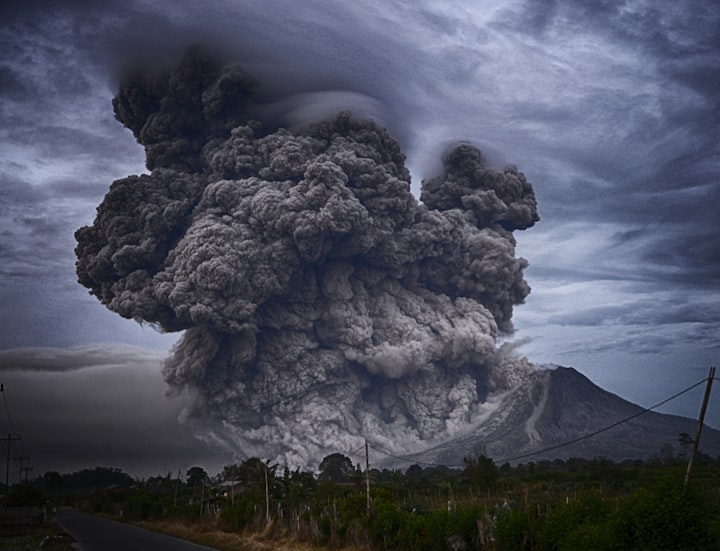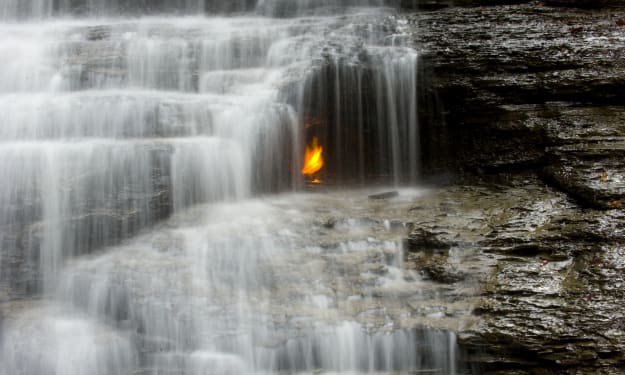Title: The Emotional Impact of Natural Disasters
Exploring Human Resilience and Vulnerability

Introduction
Natural disasters are a terrifying reality that millions of people around the world face each year. Earthquakes, hurricanes, floods, wildfires, and tsunamis, among others, strike with little warning, leaving behind a trail of destruction, death, and despair. While the physical consequences of these events are readily apparent, the emotional toll they take on individuals and communities often goes underestimated. This essay will delve into the profound emotional impact of natural disasters, exploring the range of emotions experienced by those affected and highlighting the resilience and vulnerability of human emotions in the face of such catastrophic events.
Fear and Panic
One of the most immediate and intense emotional responses to a natural disaster is fear. The sudden onset of an earthquake's violent shaking, the roar of an approaching hurricane, or the sound of rushing floodwaters can trigger an overwhelming sense of panic. Fear often leads to a fight-or-flight response, where individuals must make quick decisions about their safety, often with limited information and time. The primal instinct for survival is at the forefront, and this intense fear can have long-lasting effects on mental health.
Grief and Loss
Natural disasters often result in significant loss of life and property, leaving survivors to grapple with profound grief. The loss of loved ones, homes, possessions, and community landmarks can be emotionally devastating. Grief is a complex and multifaceted emotion, and its intensity can vary from person to person. Some individuals may experience acute grief immediately following the disaster, while others may struggle with delayed grief as they process the full extent of their losses over time.
Anger and Frustration
In the aftermath of a natural disaster, survivors may experience anger and frustration on several fronts. They may be angry at the perceived inadequacy of emergency response efforts, government agencies, or insurance companies. Frustration can also arise from the sheer magnitude of the recovery process, as individuals grapple with bureaucracy, paperwork, and a sense of powerlessness. These emotions can exacerbate the already challenging emotional landscape, adding to the stress of recovery.
Anxiety and Uncertainty
The aftermath of a natural disaster is often marked by uncertainty about the future. Survivors may face housing instability, financial insecurity, and ongoing threats from secondary hazards such as aftershocks, flooding, or disease outbreaks. This pervasive uncertainty can lead to chronic anxiety, as individuals worry about their safety, the well-being of their families, and the ability to rebuild their lives. The long-term effects of post-disaster anxiety can be profound, leading to chronic stress and mental health issues.
Resilience and Coping
Despite the overwhelming emotional challenges posed by natural disasters, humans have shown remarkable resilience in the face of adversity. Resilience refers to the ability to bounce back and adapt to difficult circumstances. Many survivors draw on their inner strength, social support networks, and coping strategies to navigate the emotional turmoil of disaster recovery. Community solidarity and the shared experience of survival can also play a crucial role in bolstering resilience.
PTSD and Trauma
For some individuals, the emotional scars of a natural disaster can persist long after the event has ended. Post-Traumatic Stress Disorder (PTSD) is a mental health condition that can develop in the wake of a traumatic experience, such as surviving a disaster. Symptoms of PTSD can include flashbacks, nightmares, hypervigilance, and avoidance of reminders of the trauma. It is important to recognize the signs of PTSD and provide access to mental health support for those who need it.
Guilt and Survivor's Guilt
Survivors of natural disasters may grapple with feelings of guilt, particularly if they have lost loved ones while others have survived. Survivor's guilt can be a profound and challenging emotion to navigate. It often involves feelings of unworthiness or a sense that one does not deserve to have survived when others did not. Addressing survivor's guilt requires empathy, understanding, and support from mental health professionals and peers.
Hope and Resilience
Despite the immense emotional challenges posed by natural disasters, stories of hope and resilience abound. Individuals and communities come together to rebuild their lives, demonstrating the strength of the human spirit. Acts of kindness, generosity, and solidarity can inspire hope in the darkest of times. These positive emotions play a crucial role in the recovery process and contribute to the healing of affected communities.
Conclusion
Natural disasters unleash a complex and intense array of emotions on those who experience them. Fear, grief, anger, and anxiety are just a few of the emotional responses that individuals and communities must grapple with in the aftermath of such events. However, the human capacity for resilience, hope, and compassion shines through even in the face of unimaginable devastation.
Understanding the emotional impact of natural disasters is crucial for emergency responders, mental health professionals, and policymakers. It underscores the importance of providing timely and accessible mental health support, disaster preparedness education, and community resilience-building efforts. By acknowledging the emotional toll of natural disasters and providing the necessary resources and support, we can help survivors navigate their emotional journeys toward healing and recovery





Comments
There are no comments for this story
Be the first to respond and start the conversation.